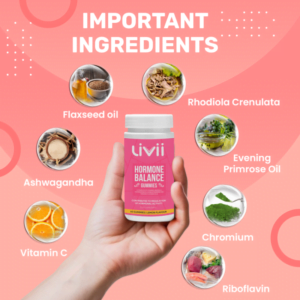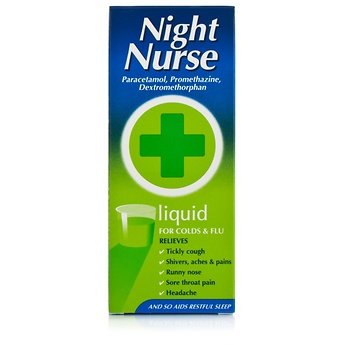Introduction
In a world inundated with stress, anxiety, and a myriad of health challenges, the quest for natural remedies has gained momentum. Among the plethora of botanical solutions, one name stands out prominently: Ashwagandha. This ancient herb, deeply rooted in Ayurveda, has recently surged in popularity worldwide. Let’s delve into its origins, well-established benefits, and whether it warrants a place as a regular daily supplement in our lives.
Origin and Tradition
Ashwagandha, scientifically known as Withania somnifera, is a small shrub native to India, the Middle East, and parts of Africa. Its usage dates back thousands of years, where it held a revered status in Ayurvedic medicine, the traditional healing system of India. In Sanskrit, “Ashwagandha” translates to “smell of horse,” hinting at its unique odor and traditional belief that consuming it imparts the strength and vitality of a horse.
Traditionally, Ashwagandha was utilized to combat stress, improve energy levels, and promote overall well-being. Its adaptogenic properties, which help the body adapt to stressors, have been central to its historical use.
Modern Scientific Validation
In recent decades, scientific interest in Ashwagandha has skyrocketed, leading to numerous studies exploring its pharmacological properties and potential health benefits. These studies have shed light on its diverse effects on the body:
- Stress Reduction: One of the most well-known benefits of Ashwagandha is its ability to reduce stress and anxiety. Research suggests that it may lower cortisol levels, the hormone associated with stress, thereby promoting relaxation and mental clarity.
- Improved Cognitive Function: Ashwagandha has shown promise in enhancing memory, attention, and cognitive function. Its neuroprotective properties are believed to play a role in preserving brain health and mitigating age-related cognitive decline.
- Enhanced Immunity: Studies indicate that Ashwagandha possesses immunomodulatory effects, bolstering the body’s defense mechanisms against infections and illnesses. Regular supplementation may contribute to a stronger immune system and reduced susceptibility to common ailments.
- Anti-Inflammatory Effects: Chronic inflammation is implicated in various diseases, including arthritis and heart disease. Ashwagandha exhibits anti-inflammatory properties, potentially mitigating inflammation and its detrimental effects on health.
- Balanced Blood Sugar Levels: Preliminary research suggests that Ashwagandha may help regulate blood sugar levels by improving insulin sensitivity. This could be particularly beneficial for individuals with diabetes or those at risk of developing the condition.
- Support for Physical Performance: Athletes and fitness enthusiasts have turned to Ashwagandha for its purported ability to enhance physical performance and stamina. Some studies suggest that it may increase muscle strength, endurance, and recovery time.
Ashwagandha Daily Supplementation
Given its impressive array of potential benefits, the question arises: Should it be a part of our daily supplement regimen?
While the evidence supporting Ashwagandha’s efficacy is promising, it’s essential to approach supplementation with caution and individualize its usage based on specific needs and health conditions. Here are some factors to consider:
- Consultation with Healthcare Professionals: Before incorporating Ashwagandha or any supplement into your daily routine, consult with a healthcare provider, especially if you have underlying health issues or are taking medications. They can offer personalized guidance and ensure compatibility with your current treatment plan.
- Quality and Dosage: Not all supplements are created equal. Opt for reputable brands that adhere to quality standards and provide standardized extracts of Ashwagandha. Dosage recommendations may vary depending on the desired outcomes and individual tolerance levels. Start with a low dose and gradually increase as needed, under the guidance of a healthcare professional.
- Consistency and Monitoring: Like many herbal supplements, effects may take time to manifest. Consistency is key, and regular usage over an extended period may yield optimal results. Monitor your response to supplementation closely and adjust dosage or frequency as necessary.
- Integration with Lifestyle Factors: While Ashwagandha can complement a healthy lifestyle, it’s not a substitute for proper nutrition, exercise, and stress management practices. Aim for a holistic approach to wellness, incorporating Ashwagandha as one component of a balanced regimen.
- Potential Side Effects and Interactions: While generally considered safe for most people, it may cause side effects such as digestive issues or drowsiness in some individuals. Additionally, it may interact with certain medications, particularly those affecting the central nervous system or hormone levels. Be mindful of any adverse reactions and discontinue use if necessary.
Ashwagandha’s recent surge in popularity is backed by centuries of traditional use and a growing body of scientific research validating its potential health benefits. While it holds promise as a daily supplement for stress management, cognitive support, immune enhancement, and more, cautious and informed supplementation is paramount. By collaborating with healthcare professionals, prioritizing quality and consistency, and integrating Ashwagandha into a holistic wellness approach, individuals can harness its therapeutic potential to support their health and vitality.
________
Disclaimer: Health articles on medical conditions are for information only and do not form a basis for diagnosis. We recommend that if you have any concerns, speak to your doctor or pharmacist for further help and guidance.









